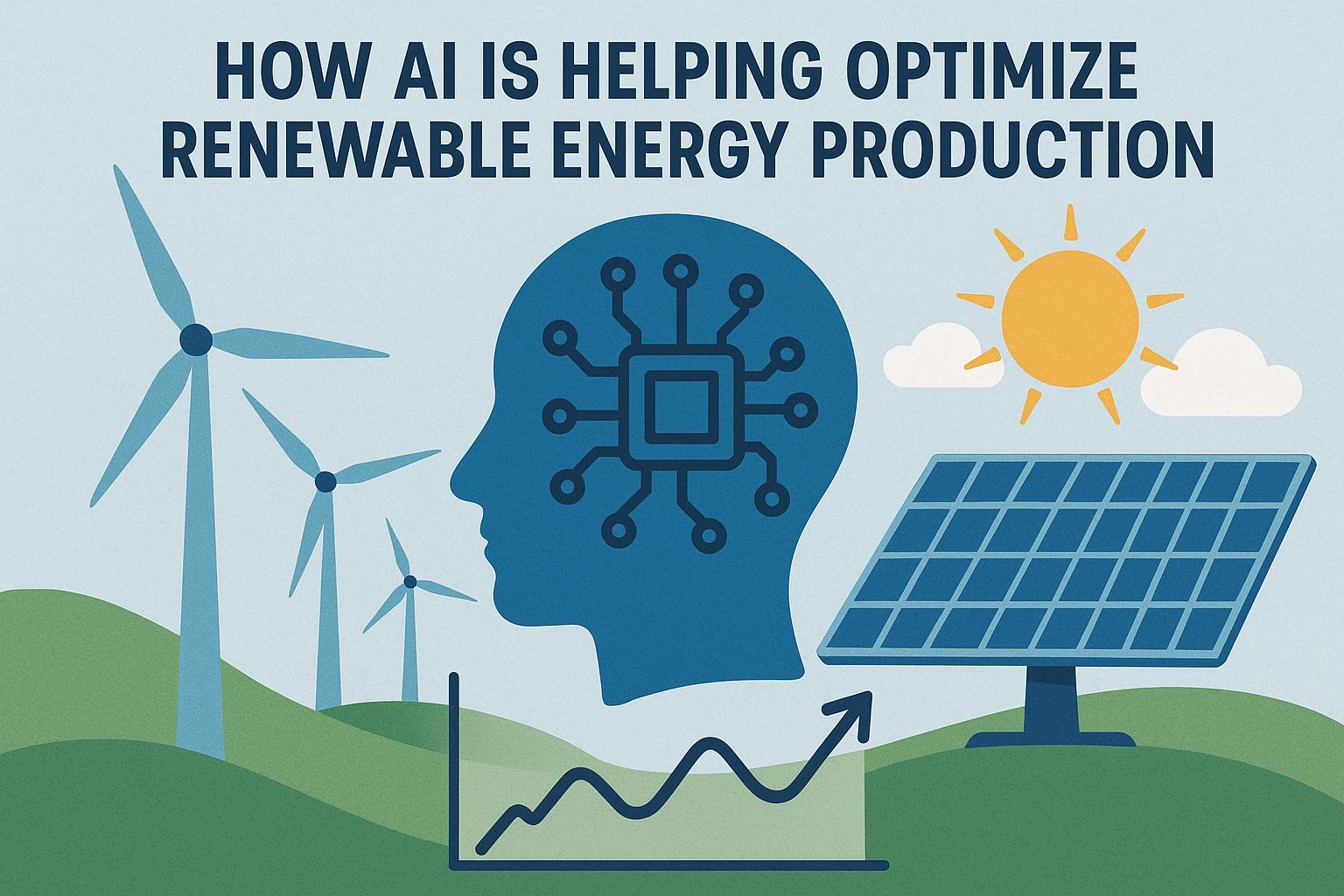
Introduction
The role of Artificial Intelligence (AI) in transforming the renewable energy landscape is becoming increasingly pivotal. As global concerns about climate change and the sustainability of energy resources continue to rise, the emphasis on clean and renewable energy solutions grows stronger. In this context, AI emerges as a critical tool in optimizing and enhancing the functionality and efficiency of renewable energy systems. This encompasses solar, wind, and hydroelectric power sources. By implementing advanced algorithms, machine learning, and data analytics, AI provides innovative solutions to the challenges faced by the energy sector, ensuring a cleaner, efficient, and reliable energy future.
AI in Solar Energy Optimization
Solar energy systems are significantly benefiting from the integration of AI technologies, particularly in enhancing operational efficiency. One of the primary applications of AI in solar energy is the dynamic adjustment of solar panels. By employing AI algorithms to predict weather patterns and monitor cloud movements, solar panels can adjust their orientation dynamically. This ensures maximum exposure to sunlight, thus optimizing the energy capture. As such, AI technologies aid in maximizing the potential of solar energy systems.
AI-powered machine learning models are instrumental in improving the scheduling and coordination of solar farms. These models consider various factors such as historical weather data, geographical conditions, and equipment status to optimize energy production schedules. Machine learning algorithms can lead to better planning for maintenance activities and energy dispatch, resulting in significant improvements in resource utilization and cost reductions.
Predictive Maintenance and Fault Detection
Predictive maintenance is another area where AI proves indispensable for solar energy operators. By analyzing vast arrays of historical data and real-time inputs, AI systems can predict potential system failures before they occur. Predictive analytics can identify indicators of malfunctions or decreased efficiency, enabling operators to perform timely maintenance activities. This proactive approach reduces unexpected downtimes and extends the lifespan of equipment, contributing to the overall efficiency and sustainability of solar installations.
Enhancing Wind Energy Production with AI
The application of AI in wind energy optimization is proving to be a game-changer for the industry. Wind farms are inherently subject to fluctuations in weather conditions, making efficient energy capture a challenge. AI technologies, particularly machine learning, offer powerful tools for predicting wind speeds and directions accurately. By analyzing meteorological data, AI systems enable the intelligent adjustment of turbine blade angles to maximize the energy harnessed from the wind.
AI not only optimizes energy capture but also enhances operational efficiency across wind farms. Advanced analytics support the planning of maintenance schedules and operational strategies, ensuring that turbines operate at peak capacity with minimal interruptions.
Smart Grids and Load Balancing
AI plays a transformative role in the development of smart grid technologies that balance the variable energy production from wind farms. By forecasting energy demand and analyzing consumption patterns, AI tools support the effective distribution of electricity across the grid. This results in a stable and reliable energy supply, mitigating the unpredictability of renewable energy sources. Smart grids, powered by AI, ensure optimal load balancing, enhance energy conservation, and improve overall grid resilience.
AI in Hydroelectric Power Optimization
The application of AI technologies within the hydroelectric power sector offers considerable improvements in optimizing river flow models and water management strategies. AI-powered analytics allow for precise predictions of water inflow, enabling operators to fine-tune turbine operations accordingly. By adjusting turbine settings during peak water flows, hydroelectric facilities can significantly improve their energy output while ensuring the responsible management of water reservoirs.
Environmental Impact Assessment
Beyond operational improvements, AI is pivotal in assessing the environmental impacts associated with hydroelectric projects. AI tools facilitate comprehensive evaluations of ecological effects through simulation models and data analytics. These assessments guide the development of environmentally sustainable practices, ensuring that hydroelectric projects adhere to rigorous environmental standards and minimize potential adverse consequences.
Challenges and Future Prospects
Despite the numerous advantages AI offers in optimizing renewable energy systems, several challenges must be addressed. Data privacy concerns arise due to the extensive collection and analysis of data required to drive AI technologies effectively. Furthermore, the significant computational resources necessary to process and analyze large datasets present another challenge.
Despite these challenges, the future of AI in renewable energy optimization appears promising. The continuous advancement of AI technologies and increasing investments in renewable energy research are paving the way for a sustainable energy future. Enhanced AI tools and solutions are expected to drive further optimization of energy systems, contributing to global efforts to mitigate climate change and achieve sustainable energy goals.
Conclusion
The transformative potential of AI in revolutionizing the renewable energy sector is undeniable. By increasing energy production efficiency, reducing costs, and enabling intelligent resource management, AI is at the forefront of advancing clean energy solutions. As these technologies evolve, the development of more sophisticated tools and systems is anticipated, further solidifying the role of AI in supporting the growth and success of renewable energy initiatives worldwide. For those interested in deepening their understanding of renewable energy advancements, IEA’s website offers further insights and resources.